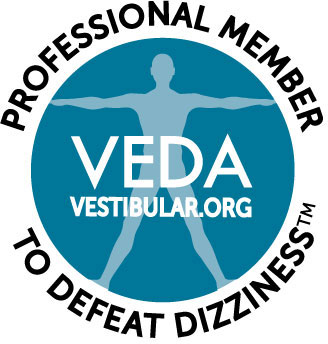With the majority of today’s workforce now working in front of computers for at least part of the day, healthy eyesight has become even more important. It’s vital for you to ensure that you don’t suffer from visual problems like binocular vision dysfunction (BVD) that could affect your work and home life. Here, the team at the Neuro Visual Center of New York shares some of the common questions asked about BVD.

What are the signs of BVD?
BVD is caused by an eye misalignment that can lead to a variety of uncomfortable physical symptoms. Two of the most common are frequent headaches and dizziness. Other signs of BVD can include:
- Overlapping or double vision symptoms, as well as an extreme sensitivity to light.
- Difficulty with reading and reading comprehension (skipping lines, losing your place while reading).
- Anxiety and restlessness when walking through (or thinking of walking through) large, open buildings with tall ceilings.
How do you get BVD?
BVD can be genetically inherited, but in many cases symptoms may not show for years. Your eyes and body generally do a fairly good job of coping with the condition, which could lead you to believe that the occasional bout of blurred or double vision is caused by other factors. BVD can also be caused by head trauma, including concussion, stroke or neurological disorders.
Can BVD make driving difficult?
Many people with BVD become nervous and anxious when driving. This is due to the abundance of visual stimuli a driver must process as they drive, which can often intensify their dizziness. This is called visual vertigo, and it makes driving very difficult. Add in the anxiety of not knowing when your next dizzy spell is going to hit, and panic attacks in the car become a very real possibility.
Let Us Treat BVD Symptoms
You can rely on the Neuro Visual Center of New York to treat your binocular vision problems. We provide a full range of services to that end, such as neurovisual examinations to determine the true cause of your symptoms. If we determine that you’re suffering from BVD, your doctor can design a treatment plan customized to meet your specific needs. We also offer the following products and services to help you deal with BVD such as:
- Custom aligning prismatic lenses to treat symptoms of BVD.
- Contact lenses to correct astigmatism and prism contact lenses to treat BVD.
- Comprehensive optometric and neurovisual examinations.
Count on us to answer all your questions about binocular vision dysfunction and provide you with lasting solutions. Call us today at (516) 224-4888 to schedule an appointment.






Are there doctors in the Minneapolis area who you could recommend to test & treat BVD?
Please visit the Vision Specialist of Michigan website to find a doctor closest to you.
Could people with uneven gait and scoliotic like spine actually just have an eye issue? Suppose at birth they always compensated by tilting head one way and the rest of the body followed?
Second questions to people you treat with VH or ones that have had a neck tilt and not realized it. Did their gait improve? How about their neuromuscular connection since with new glasses they become more grounded so to speak?
Yes we feel there can be a coorelation with scoliosis and head tilt due to eye misalignment. After our treatment, most of our patients have significant improvement in their gait.
All the best
Could the driving related symptoms described here be caused by esophoria? Or only by vertical heterophoria?
The driving related symptoms can come from any type of binocular vision problem. Esophoria is a common problem with patients who get dizzy while driving.
The Neuro Visual Center
I’m 33, about 2 weeks ago I realized I was uneasy and felt kind of lightheaded whenever I was driving. This proves problematic as I drive for a living. Sometimes it’s fine, other times it’s mentally exhausting to try and focus on the road for 6 hours. Is this possibly bvd?
Yes it can be BVD.
Hi, I am from India. Age : 27.
When I was 15, I just woke up one morning to find out that I’m not able to read properly. I had so much problem even reading one sentence. The shocking thing is I had so much fine eyes just a night before. Never felt anything like that before.
It has persisted ever since. I have extreme stress reading on computer and mobile. And always have headaches and dizziness.
Is it possible that you do a different kind of assessment that isn’t happening in India? Because in India I have visited countless ophthalmologists but to no avail. Please reply, if some solution is possible. Counting a lot on it.
Hi Nitin,
We are sorry but we do not know what type of assessments are done in India. You can see if you can find a binocular vision specialist who can try to help you.
All the best
Hi…
Thanks for replying.
I can visit your clinic as it’s really problematic for me to go through the day without headaches and eye pain. Can it be solved through prism lens if it’s BVD? Actually, the ophthalmologists here in India had assigned a prism correction in my specs too but they hadn’t discussed anything about the BVD and neither had I got any comfort. Is it possible that the prism evaluation test of yours for BVD is different from this? Awaiting your kind reply.
Thanks.
Yes, most likely our evaluation is very different. However, we have no idea what type of evaluation you have had.
All the best.
Thanks. I’m looking forward to having your evaluation.